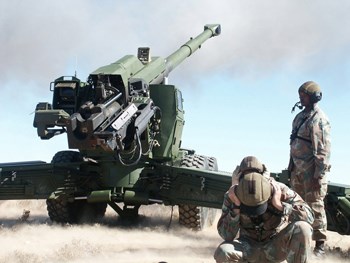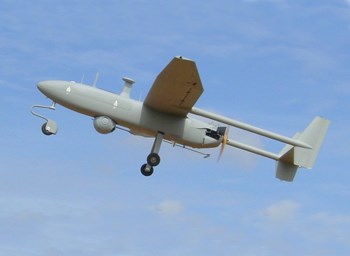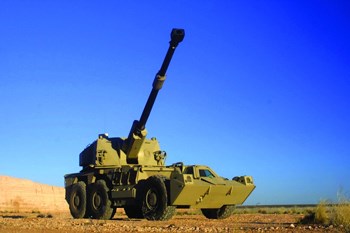Global demand for SA's arms is taking a knock, and the dwindling spending on research and development is rubbing salt into the wound...

(Image: Denel)
Authorised exports of conventional weapons last year declined to less than 10% of what the country sold three years ago, after a two-thirds decline in 2013, according to the National Conventional Arms Control Committee (NCACC).
Minister in the Presidency Jeff Radebe, who chairs the NCACC, reported to Parliament this week that only R880m worth of weapons were exported last year.
This is substantially down from the two previous years when the government authorised exports worth billions.
Last year's R880m in exports compares with R3.2bn worth of arms sold in 2013 and R10.6bn in 2012, Democratic Alliance defence spokesman David Maynier said.
Defence expert Helmoed Romer-Heitman said that in the past some of the largest exports were mine-protected vehicles used in Iraq and Afghanistan, but with those wars all but over demand for these had fallen.

(Image: Denel)
"There are some large projects in the pipeline but they are not yet complete." These included turrets for armoured personnel carriers destined for Malaysia.
"With the chronic shortage of funds for defence over the last 20 years, there has been very little to spend on research and development, so there is no new equipment to put on the market. With no new stuff there is obviously less to sell," he said.
Radebe also reported some weapons sales that may have contravened the National Conventional Arms Control Act as they were into areas of instability or repression.

(Image: Denel)
Maynier said: "We all know that the preamble to the legislation regulating conventional arms exports states that we will not trade with states engaged in repression, aggression or terrorism." However, SA continued to export conventional arms to some of the most repressive regimes in the world including Equatorial Guinea, Turkmenistan and Russia, he said. "We are going to have to urgently close the wiggle room in the legislation to stop conventional arms being exported to repressive regimes."
Maynier was concerned that the NCACC's "enhanced reports" were being rolled back and less information provided, which he suspected was aimed at hiding the names of the companies involved in the export of conventional arms from SA.
He said there was also a problem with the level of oversight executed by the two parliamentary defence committees. He said the real problem was that scrutiny and oversight of conventional arms exports had collapsed in Parliament.
"It's an absolute scandal that the last joint standing committee on defence hearing on an annual report was on 8 June 2011 to consider the NCACC's 2010 annual report. The fact is that the joint standing committee on defence is dysfunctional and failing Parliament."
Source: Business Day, via I-Net Bridge






































